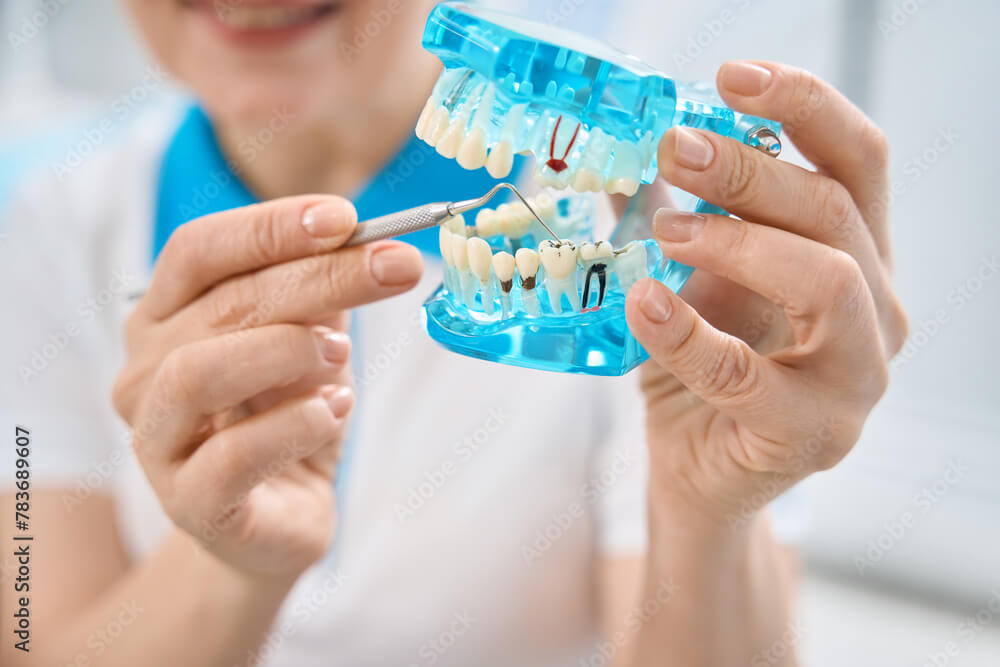
All About Root Canals: Myths vs. Facts
When a tooth is badly damaged or infected, a root canal can prevent the need for an extraction. A root canal is a standard dental procedure designed to remove the inflamed or infected pulp inside a tooth. Once removed, the pulp chamber is cleaned, disinfected, filled, and sealed.
Root canals can save natural teeth to ensure normal biting force, efficient chewing, and a natural appearance. Let’s explore some myths and facts about root canals and how your Melbourne, FL, dentist can help you revitalize your smile.
Treatment Is Painful: Myth
One of the most common myths associated with root canals is that they are painful. In reality, modern medicine has made getting a root canal similar to other dental procedures, such as fillings. This is because today’s dentists use the most up-to-date technologies and local anesthesia to keep patients comfortable and pain-free. People who get a root canal are six times more likely to consider the procedure painless than those who undergo extractions.
Root Canals Save Teeth: Fact
Without root canal treatment, severely damaged or infected teeth often need to be extracted. Root canals allow patients to save their natural teeth. Despite the misconception that a root canal “kills” the tooth as the damaged or dead nerves in the pulp are removed, the tooth still has roots, which provide it with nourishment.
The Procedure Causes Illness: Myth
Over the years, there have been many myths surrounding root canals, with one of the most widespread being that the procedure causes illness or increases your chance of contracting a systemic disease. However, there is no valid scientific research that backs up these claims, and the benefits of getting a root canal often outweigh the negatives.
Treated Teeth Require Crowns: Fact
In most cases, a tooth that has undergone root canal treatment will require a crown. Crowns or caps protect the treated tooth from recurring infection and decay and can provide greater resiliency. Treated teeth are weaker than non-treated teeth as removing some of the tooth structure weakens the tooth, making it more susceptible to cracks and other damages.
Root Canals are Only for Painful Teeth: Myth
Some people believe they do not need a root canal if their tooth doesn’t hurt. Although a throbbing toothache is often a sign that a tooth requires a root canal, a lack of pain does not mean a tooth is healthy. Even teeth that are not painful can be damaged or infected. Your Melbourne, Florida, dentist can examine your tooth to determine the best course of treatment.
Treatment Protects Surrounding Teeth: Fact
If you fail to have a damaged or infected tooth treated, you are risking the problem tooth and neighboring teeth. Untreated infections can spread to other teeth and gum tissue and eventually throughout the body. Teeth that go untreated are also more likely to become loose and eventually fall out, which could cause nearby teeth to shift in the mouth.
Root Canals Require Multiple Appointments: Myth
Getting a root canal is a fairly straightforward process that can be achieved in a single appointment. While some situations require up to two appointments depending on the severity of the problem and how fast a crown can be made. These appointments are relatively quick, lasting an average of 60 to 90 minutes.
A Root Canal Lasts a Long Time: Fact
Successful root canals can last a long time, sometimes even a lifetime. Placing a dental crown on a treated tooth can help prolong its life and help protect it from further damage. However, it’s important to continue caring for your oral health to keep the surrounding teeth and gum tissue healthy, which means brushing and flossing at home and seeing your dentist regularly for checkups.
Book Your Next Appointment Today
While getting a root canal may sound scary, most patients find the process easier than expected. At Artistic Touch Dentistry, our compassionate team of dental experts uses the newest methods and techniques to ensure your visit goes smoothly. Call our office today at (321) 722-4442 to discuss your treatment options.

